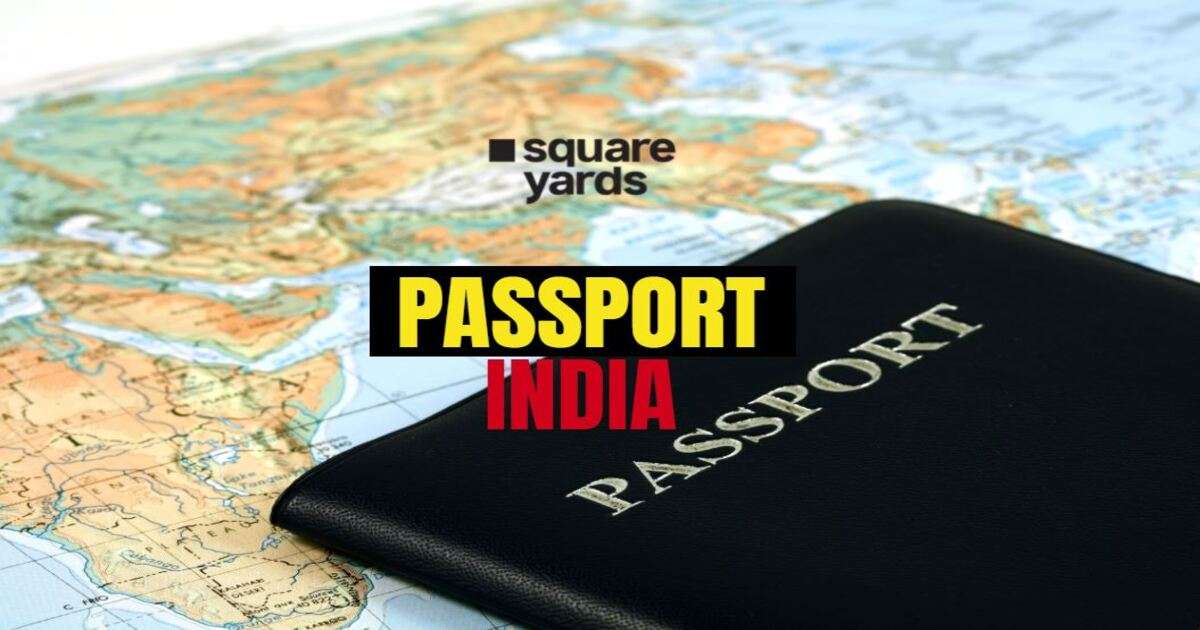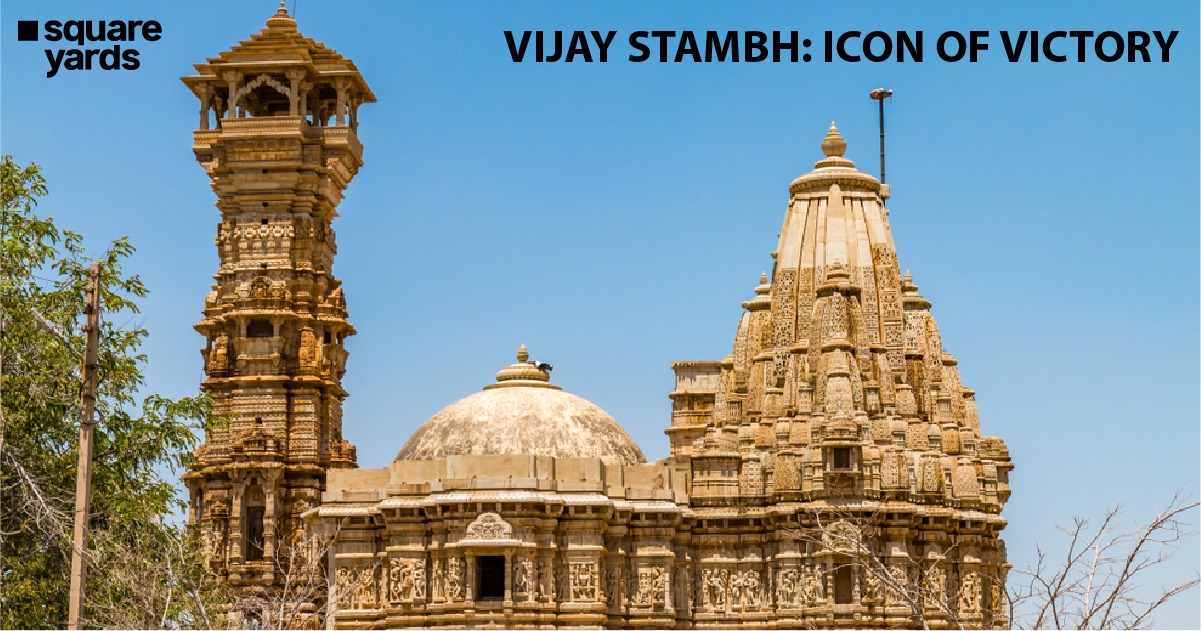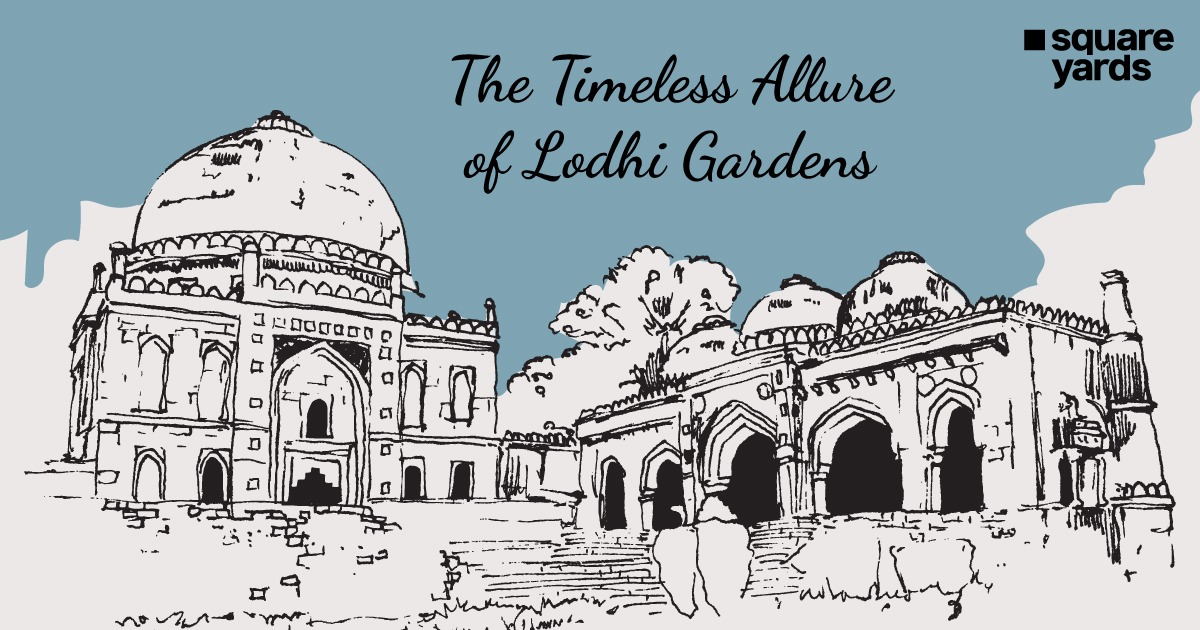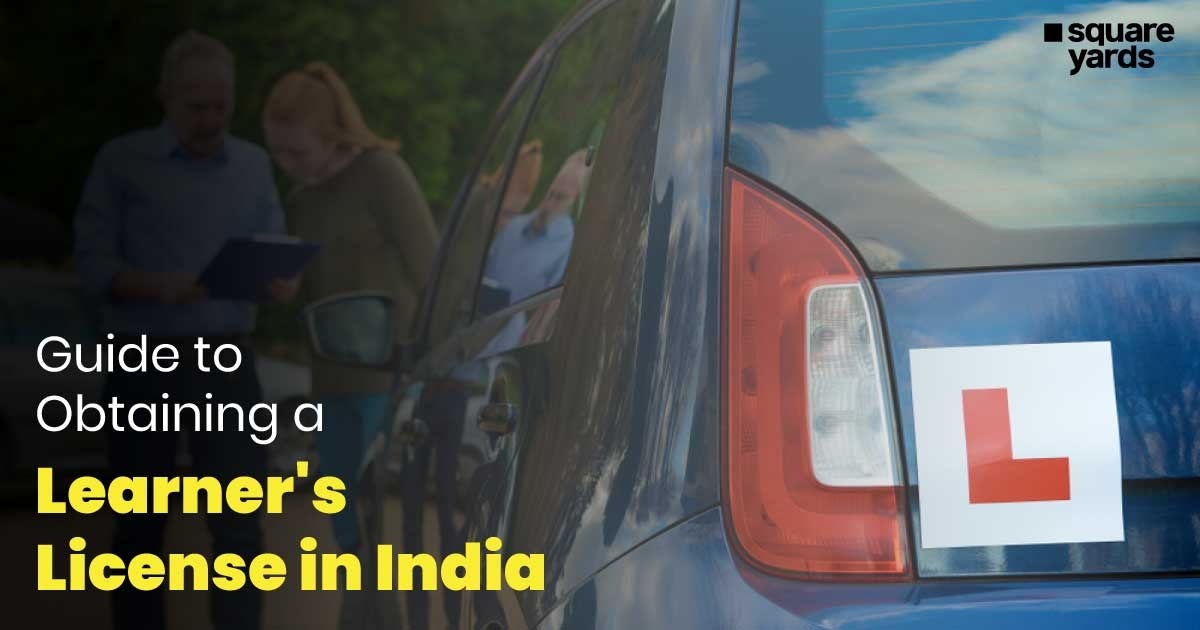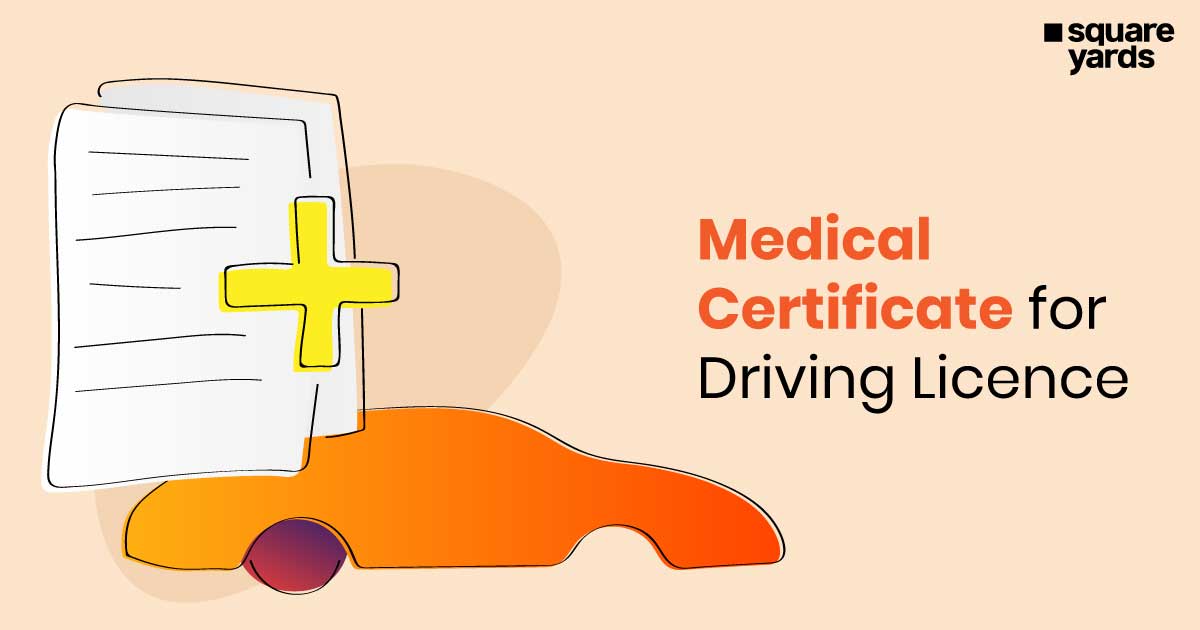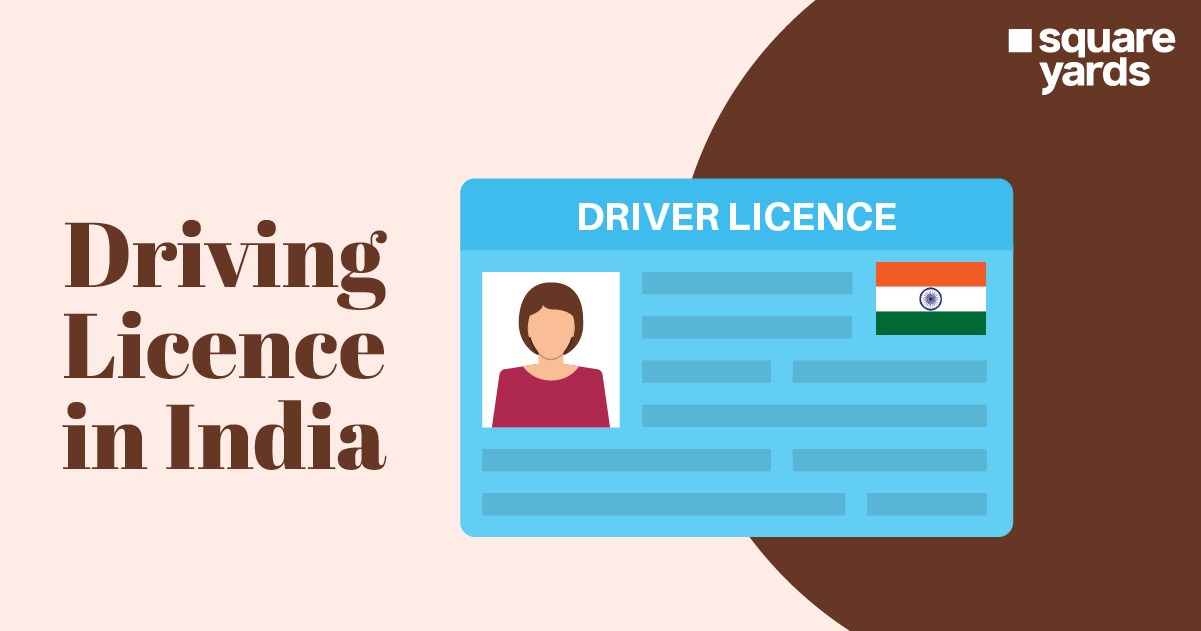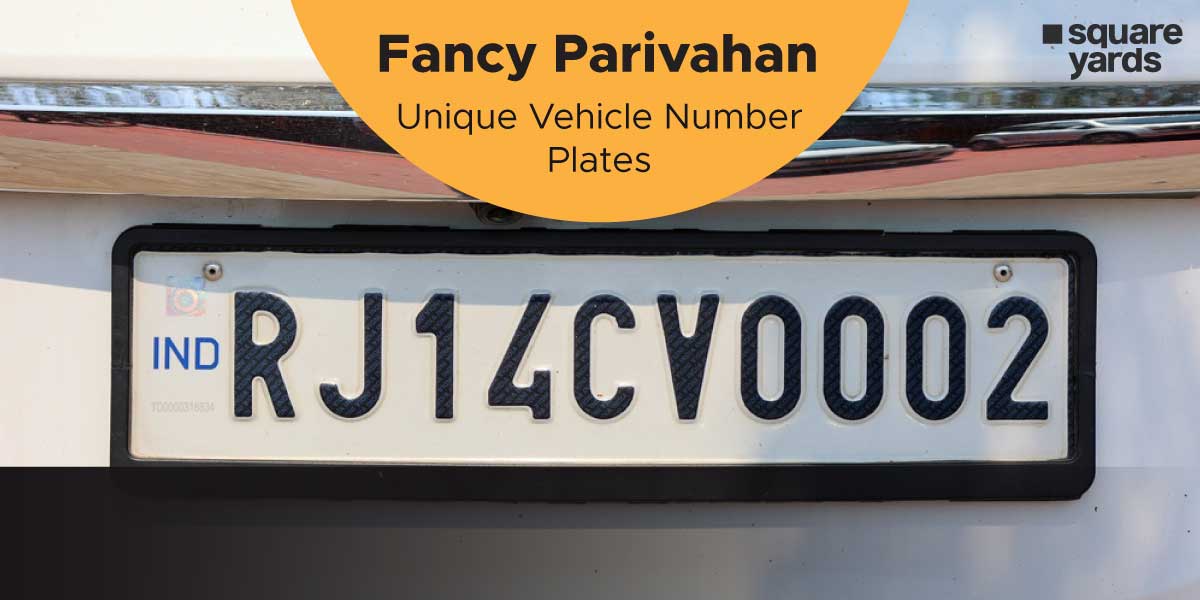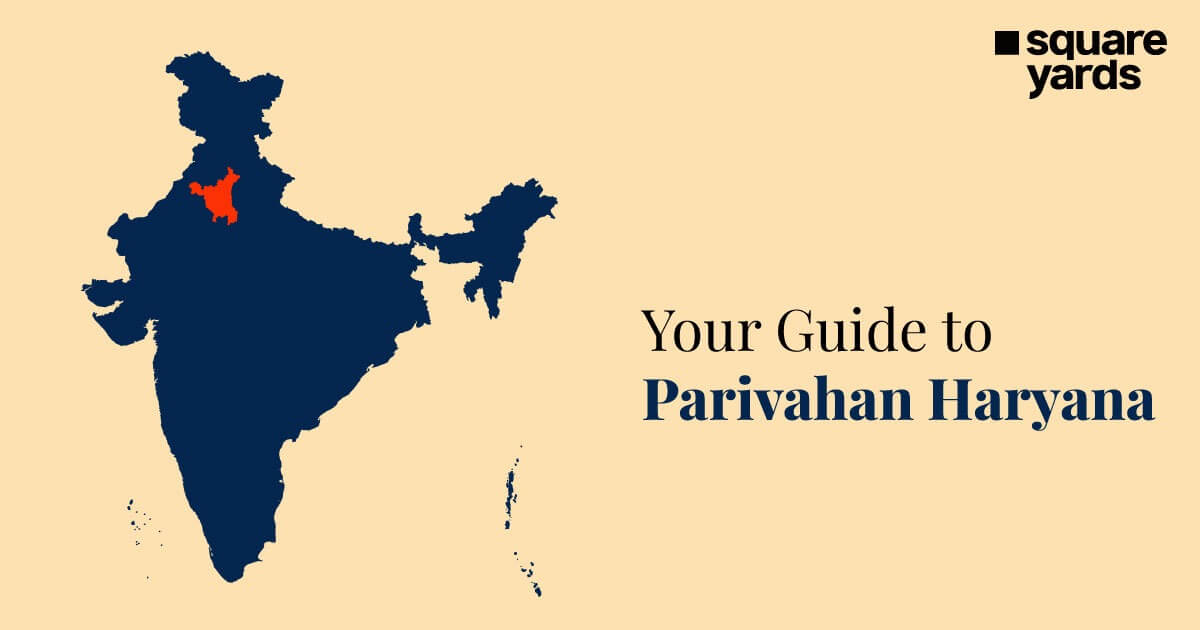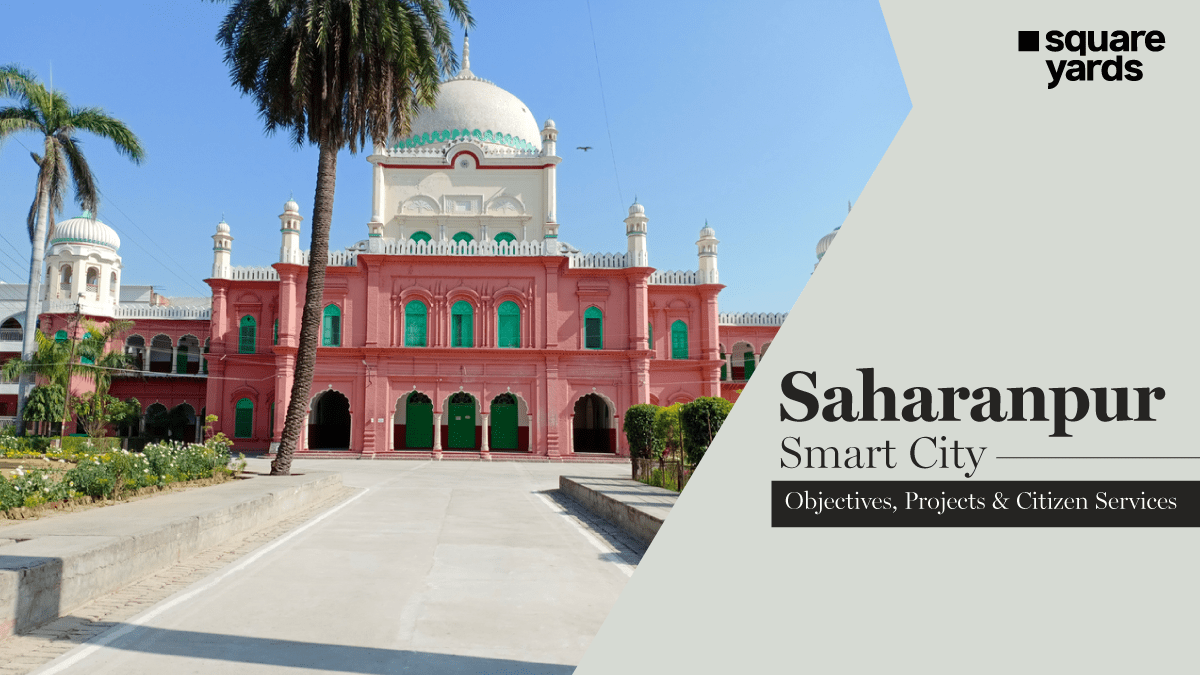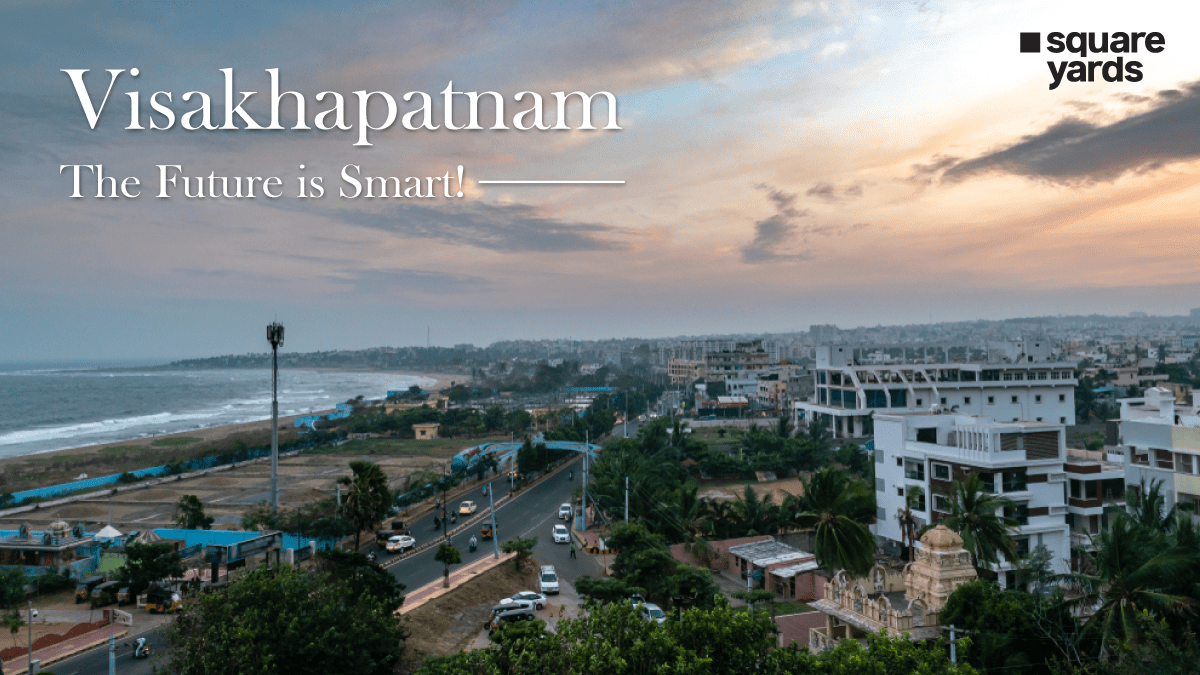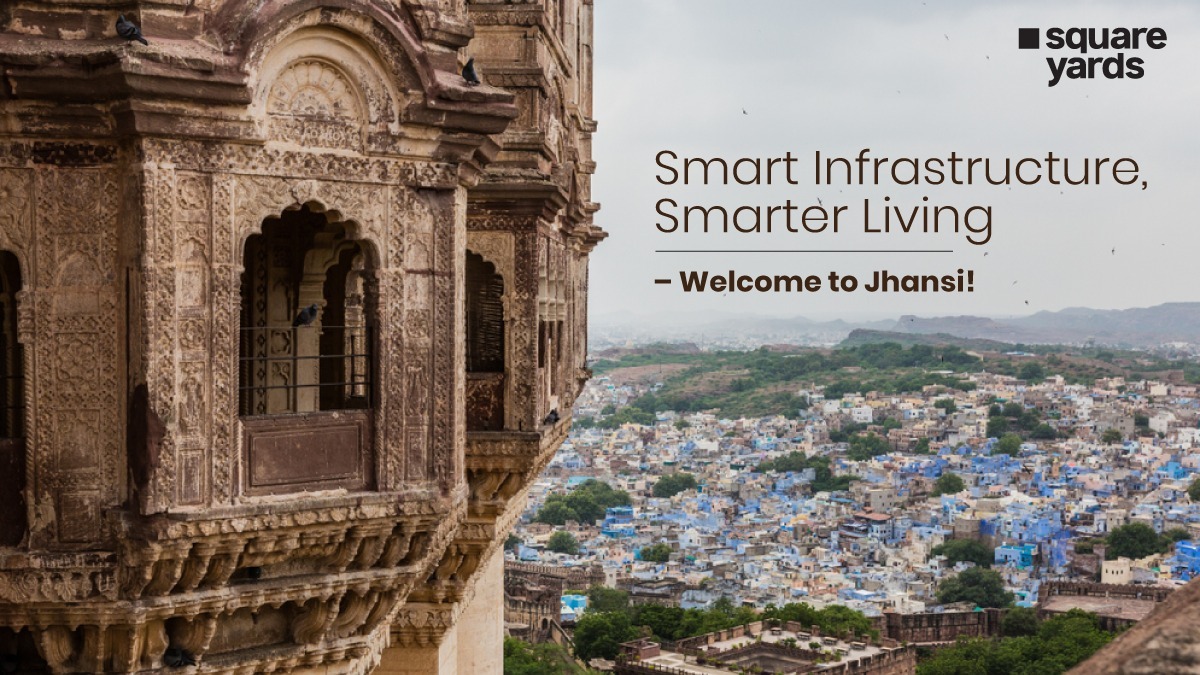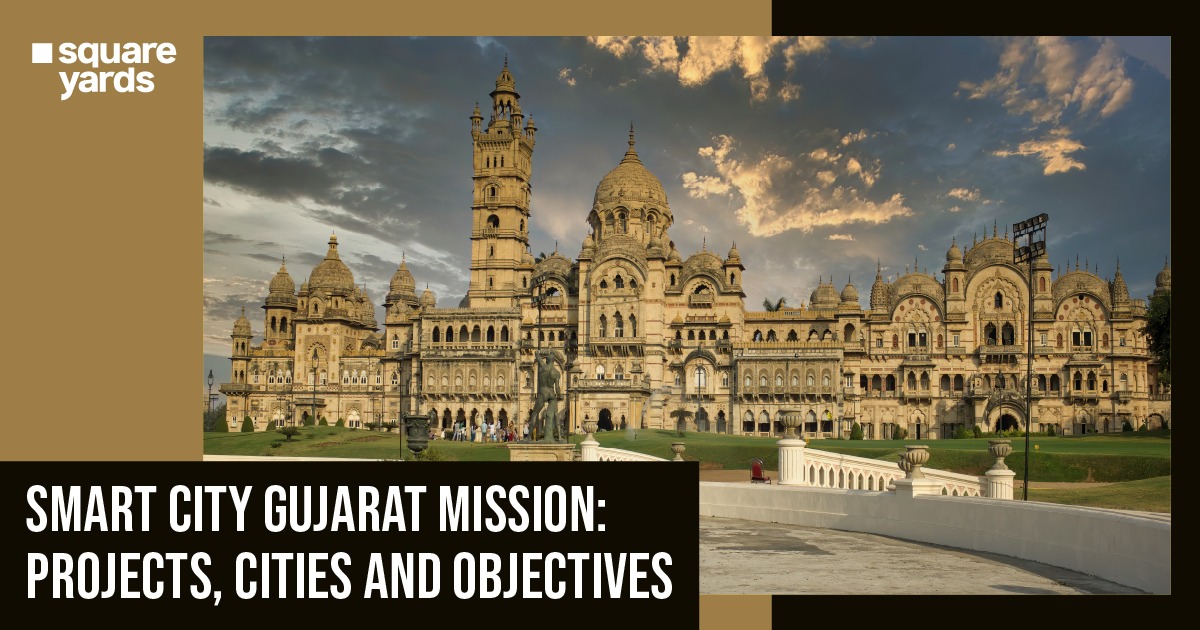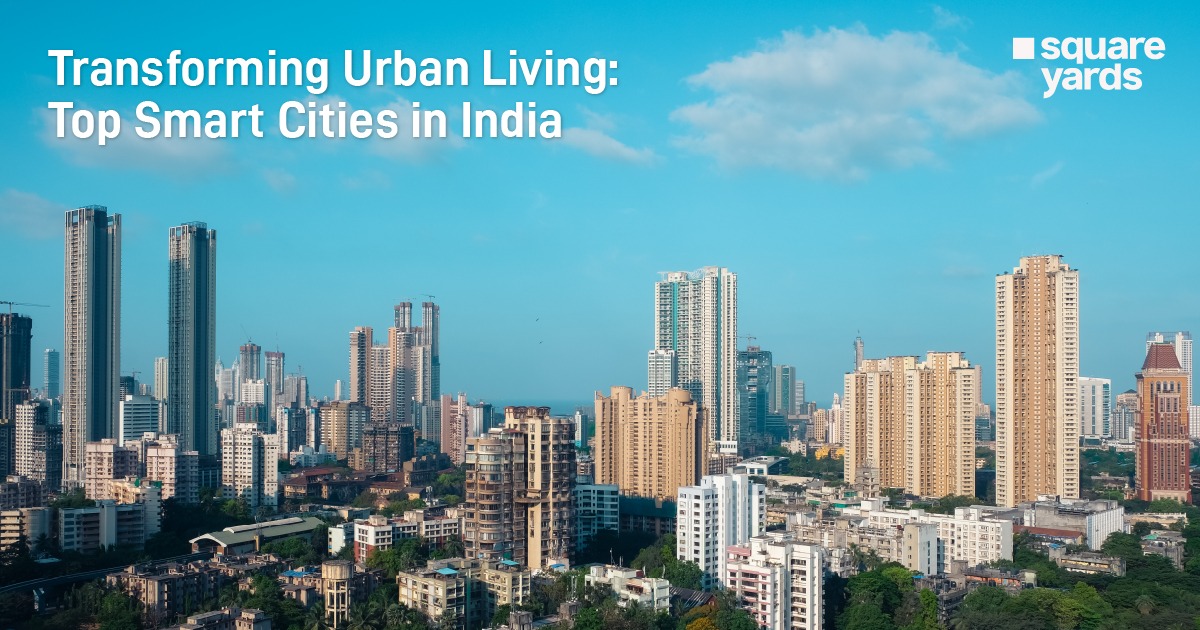Coupled with a valid visa, a passport serves as an important document safeguarding the passport holder’s rights when travelling abroad as well as ensuring their safe return to the country on or before their visa expiration.
When a person legally enters the airport of another country, the airport office, usually the immigration department, issues a stamp, known as a Travel Visa, confirming that the person’s passport has been examined and allows them to enter the country.
In this article, let’s get to know about the different passport types, application processes, fees, rules and more.
Table of Contents
- What is a Passport?
- Passport Issuing Authorities
- Types of Passports
- How to Apply for a Passport?
- Application Fees Structure for Passport in India
- Steps to Check Passport Application Status
- How to Change the Address on Passport Application Form?
- Security Features of a Passport
- What are the New Rules for Passport Holders and Issuers?
- How to Apply for a Tatkaal Passport?
- How to Book an Appointment for an Indian Passport?
- Reschedule/Cancel an Appointment for a Passport
- How Can an NRI Apply for a Passport in India?
- Documents Required for Passport in India
- For a Fresh Passport Application in India
- For a Minor’s Passport Application
- For Reissuing a Passport
- FAQ’s about Passport India
What is a Passport?
A passport is an internationally acknowledged identifying document required while travelling abroad. It can be obtained either online or through organisations. On-demand, recognised institutions provide passports as well. The legislation oversees the passport application process and fees. One has to be a minimum of 18 years and above to apply for passports.
Passport Issuing Authorities
The Ministry of External Affairs of India is the Passport Issuing Authority of the country. The passport is issued under the Indian Constitution as it is the central subject of the country.
Types of Passports
There are different types of passports in India used for both domestic and international travelling purposes. These passports are as follows:
Blue Passport
This passport is issued in blue colour and is known as a Regular Indian Passport. The Blue passport contains 36 or 60 pages. For adult citizens of India, this passport is valid for up to 10 years from the day it was issued. The ordinary passport is helpful in distinguishing ordinary citizens from the high-ranking officials of the country.
White Passport
This passport is issued in white colour and is called an Official Indian Passport or Official Passport. It is the most powerful passport in India. This passport is designated to selected government officials or people authorised by the Indian Government to take up any official task abroad. Ordinary citizens cannot apply for it. The White Passport helps the authorities to identify the passport holder as a government official and gives them the right treatment.
Maroon Passport
This passport is issued in maroon colour and is known as the Diplomatic Passport. The maroon passport is issued only to government officials and diplomats of India for domestic and foreign travel. A separate form is required to be filled out for this high-quality passport. By availing of the diplomatic passport, the person can enjoy a range of benefits on their tours. Also, the diplomatic passport holder will not be required to get Visa for their international travels.
Orange Passport
The orange passport is yet to be issued and is still in the pipeline, as announced by the Government of India. It will help identify the population who have not studied beyond class 10. Like other passports, this passport will not have the last page that has the permanent address, father’s name and other essential details of the passport holder.
How to Apply for a Passport?
It is easy to apply for a passport via the Passport Seva Online portal in every state of India. The steps to apply for the passport are:
Step 1: Visit and register on the official Passport Seva Online portal.
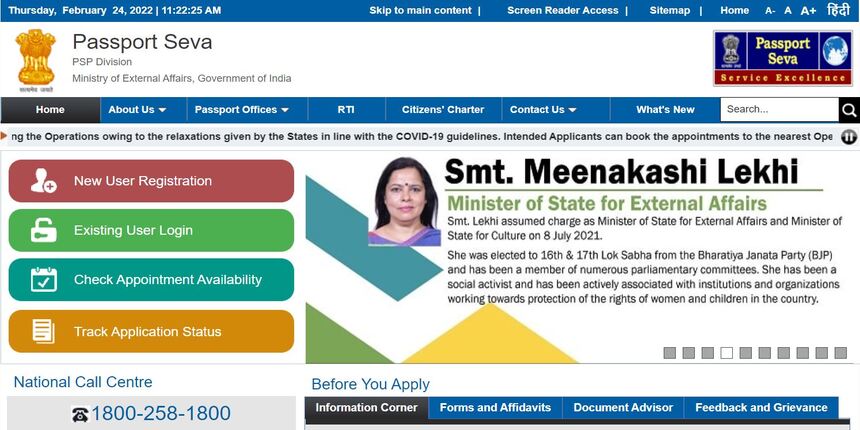
Step 2: After successfully registering on the PSK portal, log in using the right credentials.
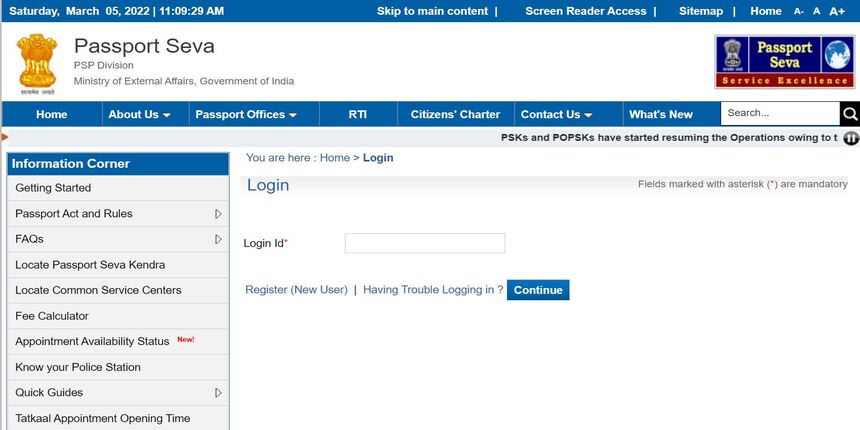
Step 3: From the two given options – Fresh Passport or Re-issue of Passport (to reissue or renew passport online), choose the one that suits your needs.
Step 4: In the type of scheme, select normal or tatkal as per requirements.
Step 5: Download the application form for the passport from the PSK portal and duly fill out the form.
Step 6: Submit the passport application form on the PSK portal.
Step 7: After successfully submitting the form, go to ‘View Saved/Submitted Applications’.
Step 8: Complete the payment process and click on the ‘Schedule Appointment’ link.
Step 9: Choose the Passport office (PSK) and the date of the appointment. Verify the details in the next window and make the payment.
Step 10: After successful payment, a receipt will be displayed on the screen. Download the receipt for future references and appointments.
Application Fees Structure for Passport in India
The Passport Office offers a range of passport services and charges a nominal fee for the same. The various application fees and services are listed in the table below.
| Passport Services List | Application Fee for Passport | Additional Tatkal Fee for Passport |
| If all 36 visa pages are used up within its 10-year validity, a new passport or a reissue of an existing passport with an extra booklet is required. | ₹ 1,500 | ₹ 2,000 |
| If all 60 visa pages in a passport have been exhausted within its 10-year validity, a new passport or a reissue of an existing passport with an additional booklet is required. | ₹ 2,000 | ₹ 2,000 |
| Fresh Passport/Reissue of Passport for Minors (under the age of 18), valid for 5 years or until the minor reaches the age of 18, whichever comes first (36 pages) | ₹ 1,000 | ₹ 2,000 |
| Passport replacement (36 pages) in the event that your passport is lost, destroyed, or stolen | ₹ 3,000 | ₹ 2,000 |
| Replacement passport (60 pages) in the event that your passport is lost, destroyed or stolen | ₹ 3,500 | ₹ 2,000 |
| Police Clearance Certificate (PCC) | ₹ 500 | NIL |
| Replacement passport (36 pages) for ECR deletion / personal information change (10 year validity) | ₹ 1,500 | ₹ 2,000 |
| Replacement passport (60 pages) for ECR deletion / personal information change (10 year validity) | ₹ 2,000 | ₹ 2,000 |
| Replacement passport (36 pages) for deletion of ECR/change in personal details for minors (under the age of 18), valid for 5 years or until the minor reaches the age of 18, whichever comes first | ₹ 1,000 | ₹ 2,000 |
Steps to Check Passport Application Status
The status of a passport can be checked on the Passport Seva online portal as well as by physically visiting the nearest passport office. The steps to check the application status are as follows:
To Check Via Passport Seva Online Portal
Step 1: Visit the official Passport Seva Kendra portal and select the tab ‘Track Your Application Status’.
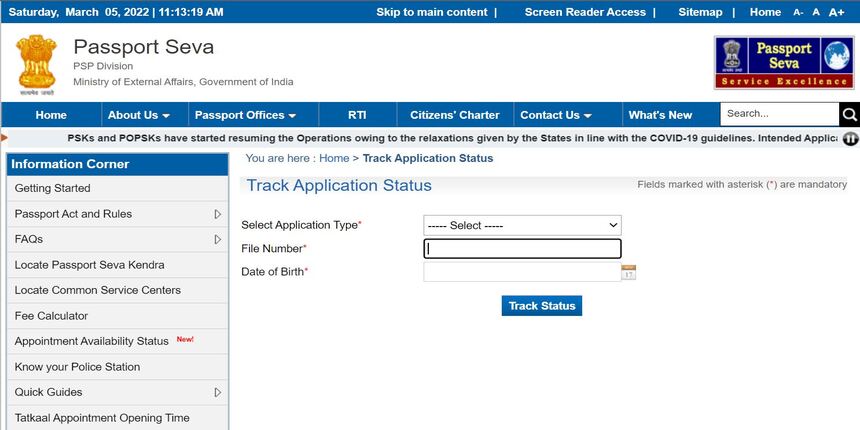
Step 2: From the drop menu, select the passport type among the options.
Step 3: In the new window, enter the 15-digit application file number and the date of birth as prescribed by the portal.
Step 4: Click on the ‘Track Status’ option after entering the details. The current status of the passport application will be displayed on the screen.
To Check Via Passport Seva Offline Portal
There are many ways in which applicants can check the status of their applications. These are as follows:
- Through SMS: Send an SMS on 9704100100 in the format – STATUS <FILE NUMBER>
- Through National Call Centre: Call on the toll-free number 1800 2581 800 between 8 A.M. and 10 P.M. on working days.
- Through Helpdesk: By visiting the nearest passport office (PSK) to get the status of the application.
Step 1: Visit the official Passport Seva Online website and register.
Step 2: After completing the registration process, log in to the portal using the appropriate credentials.
Step 3: Choose the choice that best suits you from the two alternatives – Fresh Passport or Re-issue of Passport (to reissue or renew your passport online).
Step 4: Select the scheme type to apply for a passport.
Step 5: From the portal, get the passport application form and completely fill it out.
Step 6: Complete the payment for the passport and submit the application form on the web.
Step 7: Print the payment receipt and schedule an appointment at your local passport office for the application to be processed further.
The only way to change or update the address is by applying for a new passport.
Don’t miss It
| Passport Verification | Police Verification for Passport |
| Passport Seva | Passport Seva Kendra: Registration and Application Process |
| Renew Passport | How to Renewal Passport Online? |
| Passport Status | How to Check Passport Status Online? |
| Passport Reference Number | How to Get Passport Reference Number? |
| Passport Application Form | How to Fill Passport Application Form? |
| Reschedule Passport Appintment | How to Reschedule Passport Appointment Online? |
| Documents for Passport | List of Documents Required for Passport Application |
| ePassport | How to Apply for ePassport? |
| Types of Passport | What is Different Types of Passport in India? |
| Passport for Minor | How to Apply for Minor Passport? |
A passport is a machine-readable travel document issued by the Indian Government. The security features of an Indian passport are as follows:
Bio Page
This page contains all the information about the passport holder, such as name, permanent address, father’s name, date of birth, etc. The page is made up of polycarbonate material under high pressure and temperature. The page is laminated to avoid any kind of rewriting or tampering of information. It also has a Letter Screen Image (LSI) which helps prevent any tampering of the document. The LSI, also known as a ghost image, has all the information about the passport holder and is viewed under a hand lens.
Punched/Gothic Number
This is a security feature on the top corner of the visa page of the passport. It is a perforated passport number printed on the page with the help of lasers. The perforated passport number starts descending from the middle of the passport (usually from page 19). It is because the perforation size also diminishes with every page.
Dicuts
The certain horizontal lines on the tilted bio page are known as dicuts. When the bio page is titled in the transmitted light, dicuts can be observed.
Barcode
Barcode is present on the back cover of the Indian passport and on the last page. On scanning the barcode, all information of the holder, such as travel details and others, can be retrieved.
Watermark
The watermark can be viewed under the transmitted light. There are two watermarks in the passport, along with the Ashok Chakra connected from head to head and toe-to-toe.
What are the New Rules for Passport Holders and Issuers?
The Indian Government has set some rules for both passport issuing authorities and passport holders. This set of new rules are as follows:
- The last page of the passport will no longer include the residential information of the passport holder. The MEA is planning to exclude the residential information from the last page. Though the data will not be printed on the document, it will still be in the database of the government.
- The government has announced the addition of passport colours along with existing ones. Till now, the passport was issued in maroon (for diplomats and government officials), white (for government officials), and blue (for ECR and ECNR). Soon, orange coloured passports will be launched for the ECR category in India.
- The parent’s name of the passport holder will no longer be printed on the last page of the passport. But for the single parent’s child and estranged mother/father, the final decision is yet to be made.
- The physical verification by the police will be changed to online police verification. This will help lessen passport processing time.
Here are the passport rules already in effect:
- The post-police verification option has been given and availed by ordinary passport holders.
- Applicants can submit other identity and address proof if they do not have their birth certificate with them.
- Only the name of one of the parents is important. The name of both the parents is no longer required.
- Unlike earlier, where 15 annexes were submitted to MEA, now only 9 annexes need to be submitted.
- Attestation is no longer mandatory for the 9 annexes that need to be submitted to the MEA.
- Marriage Certificate and name of the spouse is no longer mandatory to apply for a passport in India.
- A self-declaration form can be submitted in case the applicant is unable to get a No Objection Certificate (NOC) or identity certificate from his/her employer.
How to Apply for a Tatkaal Passport?
The citizens can apply for a Tatkal Passport under the ‘Tatkal Scheme’ to receive their passport urgently. One can also renew their passport online on the Passport Seva Kendra portal. The step-by-step process to apply for a tatkaal passport are as follows:
Step 1: Visit and register on the official Passport Seva Online portal.
Step 2: After successfully registering, log in to the portal using the right credentials.
Step 3: From the two options – Fresh Passport or Re-issue of Passport (to reissue or renew passport online), choose the one that suits you.
Step 4: In the scheme type, select Tatkaal to apply for a passport under the tatkaal scheme.
Step 5: Download the passport application form from the portal and fill it out thoroughly.
Step 6: Submit the application form on the portal and complete the payment for the tatkaal passport.
Step 7: Take a printout of the payment receipt and book an appointment at your nearest passport office for further processing of the application.
How to Book an Appointment for an Indian Passport?
The steps to apply for a passport appointment are as follows:
Step 1: Visit and register on the official Passport Seva Online portal.
Step 2: After successfully registering on the portal, log in to the portal using the right credentials as used during registration.
Step 3: After logging in to the Passport Seva Online, click on the option of ‘Schedule Appointed’ under the tab of ‘View Saved/Submitted Applications.
Step 4: Select the ‘Book Appointment’ option. Choose the Passport Seva Kendra (PSK) and the time of the passport appointment as per convenience.
Step 5: Review the appointment details on the screen, click on ‘Book Appointment‘. Pay the nominal fee as asked by the portal to book the appointment.
Step 6: The passport appointment confirmation message will be displayed on the screen, with the option to download the receipt. The appointment confirmation receipt can be downloaded from here for further processing.
Reschedule/Cancel an Appointment for a Passport
Rescheduling or cancelling the appointment for a passport is easy via the official website of Passport Seva online. Here is how to cancel or reschedule the passport appointment.
Step 1: Visit and register on the official Passport Seva Online portal.
Step 2: After successfully registering, log in to the portal using the right credentials.
Step 3: Click on the option of ‘Schedule Appointed’ under the tab of ‘View Saved/Submitted Applications’.
Step 4: In the new window, click on the tab of Reschedule Appointment/Appointment Cancellation. A pop-up window will appear on the screen with the number of attempts left to avail of this service.
Step 5: To reschedule the appointment, select the Passport Seva Kendra (PSK) and click on the ‘Next’ button.
Step 6: Review the appointment details, click on the ‘Book Appointment’ button. Once the appointment has been booked, the last appointment will automatically get cancelled.
Step 7: The passport appointment confirmation will be shown on the screen, with the option to download the receipt. An appointment confirmation receipt can be downloaded from here.
How Can an NRI Apply for a Passport in India?
The passport application procedure for NRI in India is the same as the normal/tatkaal passport application. They can visit the passport office or Passport Seva online portal and apply for a passport. They will find an Online NRI Application option after signing in on the portal and can apply for it in the same manner as the tatkaal/normal passport.
Documents Required for Passport in India
Below mentioned are the documents required for a fresh passport application in India, a minor’s passport application and for reissuing passport.
For a Fresh Passport Application in India
The list of required documents to apply for a fresh passport in India are as follows:
- Photo of the passbook of the current bank account in any public or private sector bank
- Voter ID Card
- Aadhaar Card
- Rent Agreement
- Electricity Bill
- PAN Card
- Driving Licence
- Gas Connection Bill
- Phone Bill
- Certificate on Letterhead issued by their Employer from a reputed organisation
- Assessment Order of Income Tax
- Passport Copy of Spouse (in some cases)
- Certificate of leaving the school
- Municipal Corporation issued Birth Certificate
- Life Insurance Corporation/Companies’ issued Policy Bond
For a Minor’s Passport Application
The list of required documents to apply for a fresh passport of a minor in India are as follows:
- Self-attested copies of parent’s passports
- Proof of current address (on parent’s name)
- Photo of the passbook of the current bank account in any public or private sector bank
- Birth Certificate
- Life Insurance Corporation/Companies’ issued Policy Bond
- Aadhaar Card
- PAN Card
- Certificate of leaving the school/senior secondary school
- University Marksheet or Class 10 Marksheet
For Reissuing a Passport
The list of required documents to apply for reissuing of passport in India are as follows:
- Original old passport
- Self-attested photocopy and original copies of –
- The first and last two pages in the old passport
- Non-ECR/ECR page
- Validity extension page (if there is any)
- Observation page by the Passport Issuing Authority (if any), and
- No Objection Certificate (NOC)/Letter of Prior Intimation (PI)
FAQ’s about Passport India
Q1. Is police verification required for an Indian Passport?
Yes, police verification is important to get your passport application accepted by the passport office.
Q2. How many days will it take to get a passport?
It normally takes 30 days for the passport to reach the doorsteps of applicants.
Q3. Is there any fee charged for a passport application?
Yes, there is a nominal fee charged by the passport office and authorities to accept and process your passport application.
Q4. Can I renew my passport anywhere in India?
The passport holders can renew their passport via the official portal of Passport Seva Kendra (PSK) online or by visiting the nearest passport office.
Q5. How do I pay for my passport?
If applying online, the applicants can pay via credit card, debit card, net banking, etc.
Q6. What are the documents required for a passport?
The documents required for a passport are PAN Card, Aadhaar Card, school passing certificate, address proof, etc.
Q7. What is the required fee of a tatkal passport application?
For a tatkaal passport, the applicant needs to pay ₹3500.
Q8. Can babies travel without a passport?
Yes, babies can travel without a passport. Parents need to furnish their birth certificates at the time of travel.
Q9. What is the minimum qualification for getting an Indian passport?
For ECNR passports, the minimum qualification of the applicant should be matriculation. For ECR passports, there is no minimum qualification requirement.


